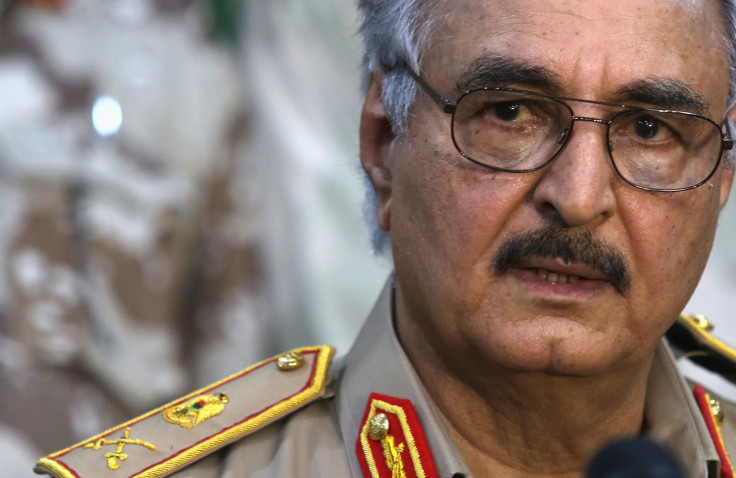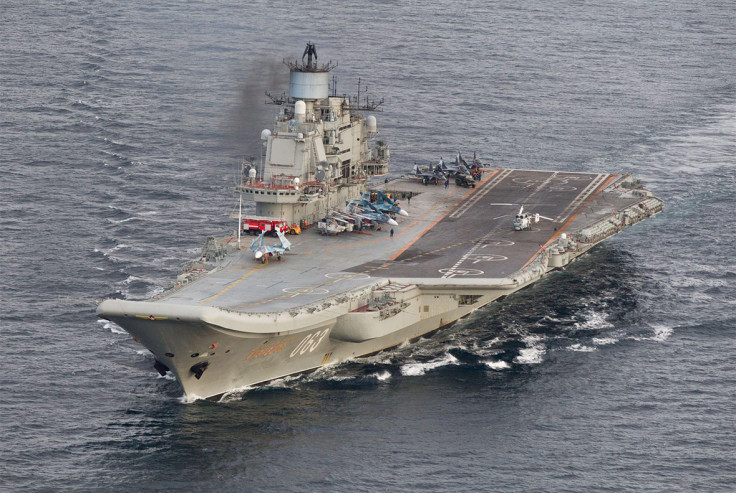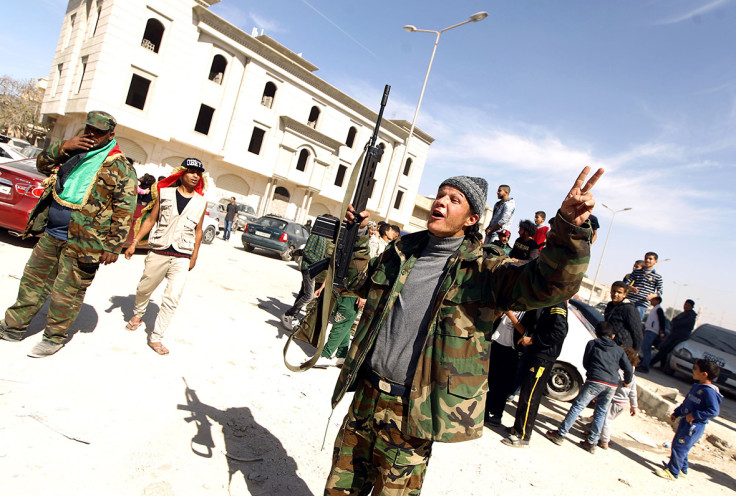Moscow eyes power in Libya as former Gaddafi stooge meets Russian officials on aircraft carrier
Khalifa Haftar, the head of Libya's armed forces, spoke with Russian defence minister aboard the vessel.

Russia has thrown its tacit support behind former Gaddafi General Khalifa Haftar as the divisive Libyan leader met with Kremlin's top brass off the north African coast aboard an aircraft carrier returning from Syria.
The meeting is not the first that Russian military officials and diplomats have held with the different warring factions in Libya, but it is the most conspicuous. Haftar, whose forces have been fighting Islamic State (Isis), al-Qaeda and brigades aligned with the UN-backed government of national accord, arrived in the seat of Libya's eastern government, Tobruk, along with a massive military presence on 12 January.
Neighbourhoods were cordoned off and roads closed by Haftar's Libyan National Army (LNA) in the port city before he boarded the Admiral Kuznetsov, a Russian aircraft returning from its active role in Syria. The Russian news agency RIA reported that Haftar spoke with Russia's Defence Minister Sergei Shoigu via video link. According to the outlet, the two men discussed the international fight against terror.
In the past Shoigu and Haftar have held meetings on the subject of further arming the Libyan National Army. An ineffective weapons embargo remains in place in Libya, but weapons and ammunition have flowed freely to the North African nation since 2011.
Russia, which has been left largely on the sidelines of the war in Libya after it opposed intervention in the country in 2011, may be looking to take advantage of a vacuum in the country in the wake of a stalled UN peace process.
"2017 is possibly Russia's year in Libya. It has been six years now since the Libyan uprising and given that Russia feels they have been somewhat vindicated or that they are winning in Syria it looks like they have their eyes on Libya as well," Mohamed Eljahr of the Atlantic Council told IBTimes UK.
"Given that there is a transition in the US and the US already seems to be retreating from Libya, there is a vacancy there for someone to fill and Russia seems to be stepping in," he added.

Haftar will be viewed, by the Kremlin – as well as perhaps the incoming Trump administration – as a stabilising force in Libya explained Eljahr. The nominal leader of Libya's armed forces, who is empowered by the country's elected parliament in the east, Haftar is – to his opposition – simultaneously seen as a Gaddafi stooge and a CIA asset.
Haftar led Libya's military during the county's disastrous war in Chad in the 1980s, but later fled to the US where he lived in Langley, Virginia.
In 2011 he returned to Libya and, under the auspices of his Karama, or 'Dignity Operation', the remnants of Libya's armed forces and popular formations under his command have battled to dislodge radical Islamists from Libya's second city of Benghazi.
In the east of Libya, Haftar is an increasingly viable leader and military governors loyal to him have replaced elected municipal councils in a number of eastern cities.
"What is clear is that Russia is definitely pushing the narrative of stability in the region. They support stability, they will actively support stability," Eljahr said.
"When it comes to the security argument he is definitely the guy who has convinced many Libyans and possibly now the Russians and will continue to convince the Russians as he continues to build and professionalise the army. Currently no-one else offers a more credible plan than his," he added.

© Copyright IBTimes 2025. All rights reserved.






















